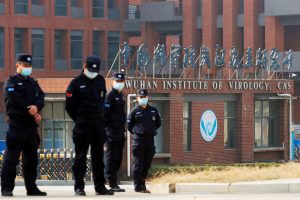A pan-India serosurvey conducted by the Council of Scientific and Industrial Research (CSIR) in its nearly 40 institutes has revealed that smokers and vegetarians were at a lesser risk of getting infected by coronavirus, reports PTI.
The survey also found that those with blood group ‘O’ may be less susceptible to the infection, while people with ‘B’ and ‘AB’ blood groups were at a higher risk.
As many as 10,427 adult individuals working in CSIR laboratories or institutions and their family members voluntary participated in survey. They were tested for antibodies to SARS-CoV-2.
Also Read| 447 adverse events reported after immunisation so far: Health Ministry
According to the study, of the 10,427 individuals, 1,058 (10.14%) had antibodies against SARS-CoV-2.
Shantanu Sengupta, senior scientist at IGIB and one of the co-authors of the paper said, “A follow up on 346 seropositive individuals among the samples after three months revealed ‘stable’ to ‘higher’ antibody levels against SARS-CoV-2, but declining plasma activity for neutralising the virus.”
The study revealed that smokers are less likely to be seropositive despite COVID-19 being a respiratory disease.
Two similar studies from France and similar reports from Italy, New York and China, reported lower infection rates among smokers.
“The study found that higher seropositivity was found for those using public transport and with occupational responsibilities such as security, housekeeping personnel, non-smokers and non-vegetarians,” Sengupta said.
Also Read| AIIMS security guard develops allergic reaction to Bharat Biotech’s Covaxin
The study is in contradiction with Union Health Ministry’s statement that said that smokers were likely to be more vulnerable to COVID-19 as smoking increases possibility of transmission of virus from hand to mouth.
In its document ‘COVID-19 Pandemic and Tobacco Use in India’, the ministry had said experts have confirmed that smokers were more likely to develop severe symptoms or die from COVID-19, as it primarily attacked the lungs and warned against use of any such products.
“The presence of such antibodies is a reliable marker of infection and recovery. However, some infected people may not develop antibodies,” Anurag Agrawal, IGIB director, and one of the co-authors of the paper said.






